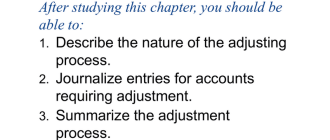
Decoding the Life of a Work-From-Home Claims Adjuster.
Life as a claims adjuster is a dynamic and challenging profession. These professionals play a crucial role in decoding the intricacies of insurance claims, ensuring fair settlements for policyholders. However, the advent of remote work has transformed the landscape for claims adjusters, presenting new possibilities and challenges. In this article, we will explore the reality of being a work-from-home claims adjuster and offer insights into the unique experiences and skills required for success in this field.
Working as a claims adjuster from the comfort of one’s own home may seem appealing at first glance. It offers the flexibility to create a schedule that fits individual needs and eliminates the stresses of commuting. However, this arrangement also requires a strong sense of self-discipline and time management. Without the structure of a traditional office environment, it is easy to become distracted or overwhelmed by the demands of remote work. To thrive as a work-from-home claims adjuster, one must possess the ability to stay focused and organized, while also maintaining open lines of communication with clients and colleagues.
Decoding the intricacies of insurance claims is no easy task, regardless of where the work is performed. As a claims adjuster, you must possess a strong analytical mind and attention to detail. While working from home offers convenience, it also means that you must rely on technology and tools to efficiently gather and analyze data. Additionally, working remotely requires adaptability and the ability to navigate through various software systems and communication channels. A work-from-home claims adjuster must continuously sharpen their skills and stay updated with the latest developments in the industry to provide accurate and timely assessments.
What Does a Work-From-Home Claims Adjuster Do?
A work-from-home claims adjuster is a professional who plays a vital role in the insurance industry. Adjusters are responsible for assessing and evaluating insurance claims to determine the extent of coverage and the appropriate compensation that should be provided. They play a crucial role in the life of policyholders by assisting them in decoding the complex world of insurance claims.
As a claims adjuster, their work-from-home setup allows them to efficiently handle their tasks remotely. They utilize various tools and software to conduct investigations, review documents, and collect evidence to fully understand the nature of the claim. They communicate with policyholders, witnesses, and other involved parties to gather necessary information and interview those who are involved. This remote setup gives them the flexibility to manage their time and work schedule efficiently.
A work-from-home claims adjuster meticulously analyzes insurance policies, contracts, and legal documents to determine the coverage and limits of liability. They carefully review the details of the claim, assessing its validity and accuracy. They may need to visit the site of the loss or damage to assess the extent of the claim, either in person or through innovative remote tools and technologies.
Once all the necessary information is gathered, a claims adjuster evaluates the claim and determines the proper amount that should be paid to the policyholder. They need to remain impartial, fair, and objective when reaching conclusions regarding the claim’s validity and settlement. They must consider policy terms and conditions as well as legal regulations when making decisions.
In addition to analyzing and evaluating claims, work-from-home claims adjusters are required to write detailed reports outlining their findings and recommendations. These reports are essential for insurance companies and serve as the basis for their decisions regarding the claim. The adjuster should maintain accurate and up-to-date documentation throughout the entire claims process.
Overall, a work-from-home claims adjuster is an integral part of the insurance industry, assessing claims and ensuring that policyholders receive the compensation they are entitled to. Their role requires strong communication skills, attention to detail, and the ability to work independently. Despite working remotely, they play a crucial role in the lives of policyholders by decoding the complexities of claims and providing fair resolutions.
Roles and Responsibilities
Decoding the life of a work-from-home claims adjuster
A work-from-home claims adjuster plays a crucial role in the insurance industry. Their primary responsibility is to investigate and assess insurance claims to determine the level of coverage, liability, and validity. They work closely with policyholders, insurance companies, and attorneys to ensure fair and accurate claim settlements.
Here is a breakdown of the key roles and responsibilities of a work-from-home claims adjuster:
| Investigation | Conduct thorough investigations into insurance claims by gathering all relevant information, including policy details, accident reports, and witness statements. Analyze the collected data to determine the facts of the case. |
| Assessment | Evaluate the level of coverage provided by the insurance policy, determining the liability of the insured party, and assessing the validity of the claim. This involves analyzing policy terms, reviewing medical records, and estimating the cost of repairs or replacements. |
| Negotiation | Engage in negotiation with policyholders, attorneys, and other involved parties to reach a fair settlement. This may include discussing the amount of claim settlement, determining liability percentages, and resolving any disputes that may arise. |
| Documentation | Prepare accurate and detailed reports documenting the investigation findings, assessment results, and settlement agreements. Maintain organized records of all claims handled, ensuring compliance with legal and regulatory requirements. |
| Customer Service | Provide excellent customer service by promptly responding to policyholders’ inquiries, addressing their concerns, and keeping them updated on the progress of their claims. Build and maintain strong relationships with policyholders and other stakeholders. |
| Continuous Learning | Stay updated on industry trends, regulations, and best practices in claims adjusting. Attend training programs, workshops, and conferences to enhance skills and knowledge in order to provide the highest quality of service. |
Being a work-from-home claims adjuster requires strong analytical, communication, and problem-solving skills. It is a challenging yet rewarding career that allows individuals to contribute to the insurance industry and help policyholders in times of need.
Benefits of Being a Work-From-Home Claims Adjuster
Being a work-from-home claims adjuster comes with numerous benefits.
1. Flexibility: Working from home gives you the flexibility to create your own schedule and manage your time more effectively. You have the freedom to choose when and where you work, allowing you to have a better work-life balance.
2. Eliminating Commute: Without the need to commute to the office, you can save time and money on transportation costs. This allows you to start your day with less stress and use the saved time for other productive activities.
3. Increased Productivity: Working in a comfortable and familiar environment can increase your productivity. You have the freedom to set up your workspace according to your preferences and adjust the lighting and temperature to help you stay focused.
4. Reduced Distractions: Being in a controlled environment at home reduces the distractions that can occur in a traditional office setting. You can create a quiet and peaceful work area that enables you to concentrate on the tasks at hand.
5. Better Health and Well-being: Working from home allows you to prioritize your health and well-being. You can take breaks and engage in activities that promote physical and mental wellness, such as stretching, exercising, or spending time with loved ones.
6. Improved Work-Life Balance: Being a work-from-home claims adjuster enables you to have a better work-life balance. You can allocate time for personal obligations, hobbies, and interests, without sacrificing your professional responsibilities.
7. Cost Savings: Working from home can lead to cost savings. You can save on expenses like commuting, buying lunch, and professional attire. Additionally, you may be eligible for tax deductions related to your home office setup.
In conclusion, the life of a work-from-home claims adjuster offers many advantages that contribute to a fulfilling and efficient work experience. Embracing this opportunity can create a positive impact on both your professional and personal life.
Flexibility and Remote Work
One of the main advantages of working as a claims adjuster from home is the flexibility it offers. Unlike traditional office jobs, a work-from-home adjuster has the freedom to set their own schedule and work at their own pace. This flexibility allows adjusters to have a better work-life balance, as they can prioritize their personal responsibilities alongside their job.
Working remotely also eliminates the daily commute, saving both time and money. Without the need to travel to and from the office, adjusters can use this extra time to focus on their work or enjoy more leisure activities. Additionally, remote work reduces the stress and expenses associated with commuting, such as traffic jams and transportation costs.
Another advantage of being a remote claims adjuster is the opportunity to work from anywhere. As long as there is a stable internet connection, adjusters can perform their duties from the comfort of their own homes, coffee shops, or even while traveling. This flexibility allows adjusters to avoid the constraints of a traditional office setting and enjoy a more dynamic work environment.
Moreover, remote work promotes a healthier work-life balance. Adjusters have the flexibility to take breaks, exercise, or spend time with their loved ones whenever they need it. This freedom not only leads to increased job satisfaction but also contributes to better physical and mental well-being.
In conclusion, the flexibility and remote work options provided to claims adjusters offer a more balanced and fulfilling professional life. By eliminating the constraints of a traditional office setting, work-from-home adjusters can tailor their schedules to accommodate personal needs and enjoy a more diverse work environment.
Key Skills for Successful Work-From-Home Claims Adjusters
Being a work-from-home claims adjuster requires a unique set of skills and abilities. As an adjuster, you must possess the necessary expertise to review, analyze, and evaluate claims accurately from the comfort of your own home. Here are a few key skills that are essential for success in this role:
| 1. Excellent Communication Skills | Claims adjusters need to have strong written and verbal communication skills. They must be able to effectively communicate with policyholders, insurance agents, and other professionals involved in the claims process. This includes the ability to clearly explain claim decisions and answer any questions or concerns. |
| 2. Detail-Oriented Nature | Attention to detail is crucial for claims adjusters. They must meticulously review all relevant documents, policies, and evidence related to a claim. This includes gathering information, documenting findings, and accurately assessing damages or losses. Missing even a small piece of information could have a significant impact on the outcome of a claim. |
| 3. Strong Analytical Skills | Analytical thinking is a vital skill for claims adjusters. They must be able to critically analyze complex information and make sound decisions based on the available evidence. This includes evaluating policy terms, assessing liability, and determining the appropriate amount of compensation to be paid. |
| 4. Time Management Abilities | Working from home requires excellent time management skills. Claims adjusters must be able to prioritize tasks, meet deadlines, and handle multiple claims simultaneously. They must also have the self-discipline to avoid distractions and stay focused on their work, even in a home environment. |
| 5. Customer Service Orientation | A successful claims adjuster understands the importance of providing excellent customer service. They must be empathetic, patient, and able to handle difficult conversations with policyholders who may be experiencing challenging situations. Building rapport and maintaining professionalism in all interactions is crucial. |
| 6. Adaptability and Flexibility | Given the nature of the work-from-home environment, claims adjusters must be adaptable and flexible. They must be able to quickly adjust to changes in the industry, technology, or company policies. This includes being open to learning new skills or processes to improve efficiency and stay up-to-date with industry trends. |
By possessing these key skills, you can excel as a work-from-home claims adjuster and provide accurate and efficient service to policyholders.
Communication and Problem-Solving
Being a work-from-home claims adjuster requires excellent communication skills and problem-solving abilities. The adjuster must be able to effectively communicate with clients, insurance companies, and various other parties involved in the claims process.
One of the key responsibilities of a claims adjuster is to gather accurate information about the claim and decode complex policies and legal jargon. This requires strong communication skills to ask the right questions and extract relevant details from the involved parties. The adjuster must be able to communicate clearly and concisely, ensuring that all parties understand the information being shared.
In addition to communication, problem-solving plays a crucial role in the work of a claims adjuster. Insurance claims often involve complex issues that require careful analysis and problem-solving skills. The adjuster must be able to think critically and creatively to find appropriate solutions and make fair and informed decisions.
Furthermore, a work-from-home claims adjuster may face unique challenges when it comes to communication and problem-solving. Working remotely means relying heavily on digital communication tools such as email, phone calls, and video conferences. The adjuster must be adept at navigating these tools and using them effectively to communicate with clients and colleagues.
Overall, effective communication and strong problem-solving abilities are essential for a work-from-home claims adjuster. These skills enable them to gather accurate information, decipher complex policies, and make informed decisions, all while effectively communicating with various parties involved in the claims process.
Challenges of Being a Work-From-Home Claims Adjuster
Life of a work-from-home claims adjuster can be rewarding and convenient, but it also comes with its fair share of challenges. Working remotely as a claims adjuster requires discipline, self-motivation, and the ability to adapt to a constantly changing work environment. While working from the comfort of your own home may seem like a dream come true, it’s important to consider the unique challenges that come with the job.

One of the main challenges of being a work-from-home claims adjuster is the lack of face-to-face interaction. Unlike a traditional office setting, where you can easily communicate and collaborate with colleagues, working remotely can feel isolating at times. Building relationships and networking with peers can be more difficult, which can impact your professional growth and development.
Another challenge is the potential for distractions and interruptions at home. When you work in an office, you have a dedicated workspace that is designed for productivity. However, when you’re working from home, it can be harder to separate your work life from your personal life. Family members, pets, and household chores can all compete for your attention, making it harder to stay focused and productive.
Decoding complex claims can also be more challenging without direct access to experts and resources. When you’re working from home, you may not have the same level of access to colleagues or resources that you would in an office setting. This can make it more difficult to gather the information and support you need to accurately assess and process claims. It requires extra effort and resourcefulness to navigate these challenges and ensure the quality of your work.
Finally, maintaining a healthy work-life balance can be a challenge as a work-from-home claims adjuster. Without the physical separation of a workplace, it can be tempting to work longer hours and blur the boundaries between work and personal life. Burnout and fatigue can become real issues, so it’s important to establish clear boundaries and prioritize self-care.
In conclusion, being a work-from-home claims adjuster offers many benefits, but it’s important to acknowledge and address the challenges that come with the job. By staying disciplined, finding ways to connect with peers, managing distractions, and prioritizing work-life balance, you can navigate these challenges and thrive in your remote career.
Isolation and Distractions
Working as a claims adjuster can be both rewarding and challenging. The decoding of insurance policies and the navigation of complex claims require focus and attention to detail. However, for those who work-from-home, a new set of challenges arises: isolation and distractions.
Isolation can be a major issue for a work-from-home claims adjuster. Without the usual office environment and colleagues nearby, it can be easy to feel disconnected and lonely. The lack of social interaction can have a negative impact on mental health and well-being. It is important for adjusters to actively seek out ways to combat isolation, such as participating in online forums for professionals in the field or scheduling regular virtual meetings with colleagues.
In addition to isolation, distractions can also pose a significant challenge for work-from-home adjusters. The home environment is often filled with potential distractions, such as household chores, family members, or pets. It requires discipline and self-control to stay focused on work tasks and avoid getting sidetracked. Setting up a dedicated workspace, establishing a routine, and communicating boundaries with family members can help minimize distractions and create a productive work environment.
Overall, while working from home as a claims adjuster offers flexibility and freedom, it comes with its own set of unique challenges. Isolation and distractions can impact productivity and well-being, but with the right strategies in place, adjusters can successfully navigate these obstacles and thrive in their work-from-home setting.
Work-From-Home Claims Adjuster Requirements and Qualifications
The work-from-home life of a claims adjuster can be rewarding and flexible, but it also comes with its own set of challenges. Decoding the intricacies of a claim requires a unique skill set and certain qualifications in order to excel in this role.
Here are some of the key requirements and qualifications for a work-from-home claims adjuster:
| Education | A bachelor’s degree in a related field, such as insurance, finance, or business, is often preferred. However, some employers may consider relevant work experience in lieu of a degree. |
| Insurance Knowledge | A strong understanding of insurance policies, coverage, and claims procedures is essential. This includes knowledge of various types of insurance, such as homeowners, auto, and liability. |
| Analytical Skills | Claims adjusters need to be able to analyze information and evaluate the validity of claims. This involves reviewing documents, gathering evidence, and assessing damages. |
| Communication Skills | Effective communication is critical for a claims adjuster, as they need to interact with clients, policyholders, and other parties involved in a claim. This includes explaining decisions, negotiating settlements, and providing updates. |
| Computer Skills | Since work-from-home claims adjusters rely heavily on technology, proficiency in computer systems, software, and online communication tools is necessary. This includes using claims management software, online databases, and virtual meeting platforms. |
| Organizational Skills | Claims adjusters must be highly organized to handle multiple claims simultaneously and meet deadlines. They need to maintain detailed records, prioritize tasks, and manage their workload efficiently. |
| Problem-Solving Skills | Being able to think critically and solve complex problems is essential for a claims adjuster. They need to assess evidence, interpret policy terms, and make fair decisions in often challenging and high-pressure situations. |
| Continuing Education | Staying up-to-date with industry trends and regulations is important for a claims adjuster. Many states require adjusters to complete continuing education courses to maintain their licenses. |
By possessing the necessary qualifications and honing the required skills, a work-from-home claims adjuster can navigate the intricate world of claims with ease and deliver the best outcomes for policyholders and insurance companies.
Educational Background and Licensing
When it comes to decoding the reality of a work-from-home claims adjuster, it’s important to understand the educational background and licensing requirements of these professionals. As the name suggests, claims adjusters are responsible for investigating insurance claims and determining the amount of coverage that should be provided to policyholders.
To embark on a career as a claims adjuster, individuals typically need to have a strong educational foundation. While a specific degree may not always be required, most employers prefer candidates who have completed a bachelor’s degree in a relevant field, such as insurance, business, or finance. This educational background equips them with the necessary knowledge and skills to analyze claims accurately and efficiently.
In addition to the educational background, claims adjusters must also obtain the appropriate licensing to practice in their jurisdiction. Licensing requirements vary by state or country, but typically involve passing an examination and meeting certain criteria, such as completing a specific number of hours of training or having a certain level of experience in the field.
The licensing process ensures that claims adjusters are knowledgeable about insurance policies and regulations, allowing them to make fair and accurate assessments of claims. It also provides a level of accountability and protection for policyholders, as they can trust that their claims will be handled by qualified professionals who have met the necessary licensing requirements.
Overall, the educational background and licensing of a work-from-home claims adjuster are crucial aspects of their profession. They enable individuals to gain the necessary knowledge and skills to effectively analyze insurance claims and provide accurate coverage assessments.
Work-From-Home Claims Adjuster Salary and Job Outlook
Working from home has become an integral part of many professionals’ lives, including claims adjusters. Claims adjusters play a crucial role in the insurance industry, decoding the intricacies of policies and determining the validity of claims. With the rise of remote work, the life of a work-from-home claims adjuster has become an attractive option for many individuals seeking a flexible career.
While the specific salary of a work-from-home claims adjuster can vary depending on factors such as experience, location, and company, the job generally offers competitive compensation. On average, claims adjusters earn a median annual salary of around $65,000 to $70,000. Those with several years of experience or specialized expertise in certain areas of claims adjustment can earn significantly higher salaries.
In addition to the salary potential, the job outlook for work-from-home claims adjusters remains positive. The insurance industry continues to grow, creating a steady demand for qualified professionals. As more companies embrace remote work and adapt their business models to accommodate virtual collaboration, the opportunities for work-from-home claims adjusters are expected to increase.
| Flexible work schedule | Potential for isolation and limited social interaction |
| Ability to work from anywhere | Requires self-motivation and discipline |
| Lower expenses on commuting and work-related expenses | Possible difficulties in separating work and personal life |
| Opportunity for a better work-life balance | Potential for distractions at home |
Overall, working as a claims adjuster from home can provide a rewarding and flexible career option. With its competitive salary and positive job outlook, individuals interested in the insurance industry and a remote work lifestyle may find this career path appealing.
Salary Range and Employment Opportunities
The work-from-home life of a claims adjuster can offer a range of salary options based on various factors. Some of these factors include experience, location, and the type of insurance company that employs the adjuster.
On average, a claims adjuster can expect to earn a salary ranging from $40,000 to $70,000 per year. However, it is important to note that more experienced adjusters working for reputable insurance companies can earn salaries in the range of $80,000 to $100,000 or more.
The employment opportunities for work-from-home claims adjusters are abundant due to the rising demand for remote work and the need for skilled professionals in the insurance industry. Insurance companies are increasingly embracing the remote work model and hiring claims adjusters who can work from anywhere. This provides adjusters with a wider array of opportunities to find employment in various locations.
If you have a knack for decoding claims, have strong communication skills, and are self-disciplined, a career as a work-from-home claims adjuster could be a lucrative and fulfilling choice. With the right skills and experience, you can enjoy the benefits of a flexible work schedule and the convenience of working from the comfort of your own home.
How to Become a Work-From-Home Claims Adjuster
Being a work-from-home claims adjuster offers the flexibility and convenience of working from the comfort of your own home. However, it requires certain skills and qualifications to succeed in this career. Here are some steps to become a work-from-home claims adjuster:
- Educate yourself: Gain a comprehensive understanding of the insurance industry and the role of a claims adjuster. You can pursue a degree in insurance or take relevant courses to enhance your knowledge.
- Develop key skills: Claims adjusters need strong analytical, communication, and negotiation skills. Take courses or participate in workshops to improve these essential skills.
- Obtain relevant certifications: Depending on your location and the type of claims you wish to handle, there may be specific certifications you need to obtain. Research the requirements and get certified.
- Gain experience: Start by working in an entry-level position in the insurance industry to gain practical experience. This will help you understand the various aspects of claims adjusting and build a solid foundation.
- Network: Connect with professionals in the insurance industry, attend industry events, and join relevant associations or organizations. Networking can open doors and help you find work-from-home opportunities.
- Apply for work-from-home positions: Search for work-from-home claims adjuster positions on job boards, company websites, and through networking contacts. Tailor your resume and cover letter to highlight your relevant skills and experience.
- Prepare for virtual interviews: As a work-from-home claims adjuster, you may need to undergo remote interviews. Familiarize yourself with video conferencing platforms and ensure you have a stable internet connection.
- Stay updated: Keep up with industry trends, regulations, and technological advancements. Attend webinars, read industry publications, and continue learning to stay ahead in your career.
By following these steps and dedicating yourself to continuous learning, you can become a successful work-from-home claims adjuster. Remember that the life of a work-from-home adjuster requires self-discipline, time management, and the ability to effectively communicate remotely. Decoding the intricacies of claims adjusting and embracing the remote work lifestyle can lead to a rewarding and fulfilling career.
Question-answer:
What is a work-from-home claims adjuster?
A work-from-home claims adjuster is a professional who investigates insurance claims and determines the amount of compensation to be paid to the policyholder. They have the flexibility to work remotely from their home rather than at a traditional office.
What skills are required to become a work-from-home claims adjuster?
To become a work-from-home claims adjuster, you need strong analytical and investigative skills. Attention to detail, excellent communication skills, and the ability to handle stressful situations are also essential. Additionally, knowledge of insurance policies and regulations is crucial for this role.
What are the benefits of being a work-from-home claims adjuster?
There are several benefits of being a work-from-home claims adjuster. Firstly, you have the flexibility to set your own schedule and work from the comfort of your home. This saves time and money on commuting. Secondly, it allows for a better work-life balance, as you can spend more time with your family and engage in personal activities. Lastly, it eliminates the stress of a daily office environment and provides a quieter and more focused work atmosphere.
What challenges can work-from-home claims adjusters face?
Work-from-home claims adjusters may face several challenges. One of the main challenges is staying motivated and disciplined while working independently. It can be difficult to stay focused without the structure and accountability of a traditional office setting. Additionally, communication with clients and team members may be more challenging, as it relies heavily on technology. Lastly, managing work-life balance can be a challenge, as there is a potential for work to intrude on personal time without clear boundaries.






